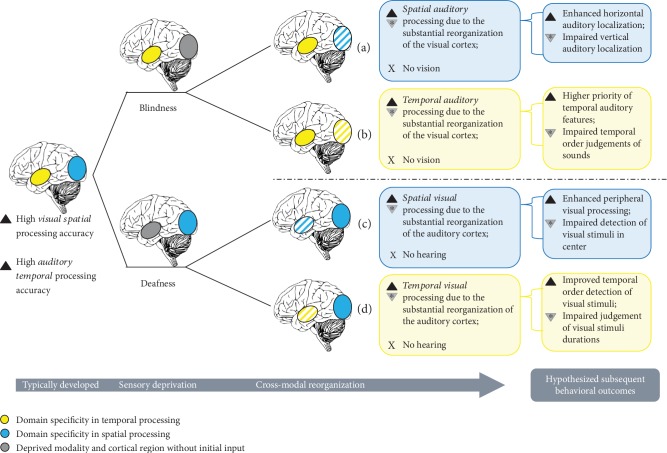Figure 1.
Illustration of the possible consequences of cross-modal reorganization following sensory deprivation. In typically developed individuals, the occipital cortex executes the highly detailed spatial processing of visual stimuli, whereas the temporal cortex is adequately used for the high temporal processing of auditory stimuli. Following blindness, (a) an improvement in spatial auditory processing abilities and/or (b) an improvement in temporal auditory processing abilities occurs through the takeover of certain regions in the occipital cortex (hatched area). Following deafness, (c) an improvement in spatial visual processing abilities and/or (d) an improvement in temporal visual processing abilities occurs through the takeover of certain regions in the temporal cortex (hatched area). Notably, outcomes (a) and (b), as well as (c) and (d), are not necessarily mutually exclusive. Additionally, certain aspects of sensory processing are plausibly decreased after cortical reorganization, as indicated by the asterisks. Hypothesized subsequent behavioral outcomes are shown on the right side of the figure.

